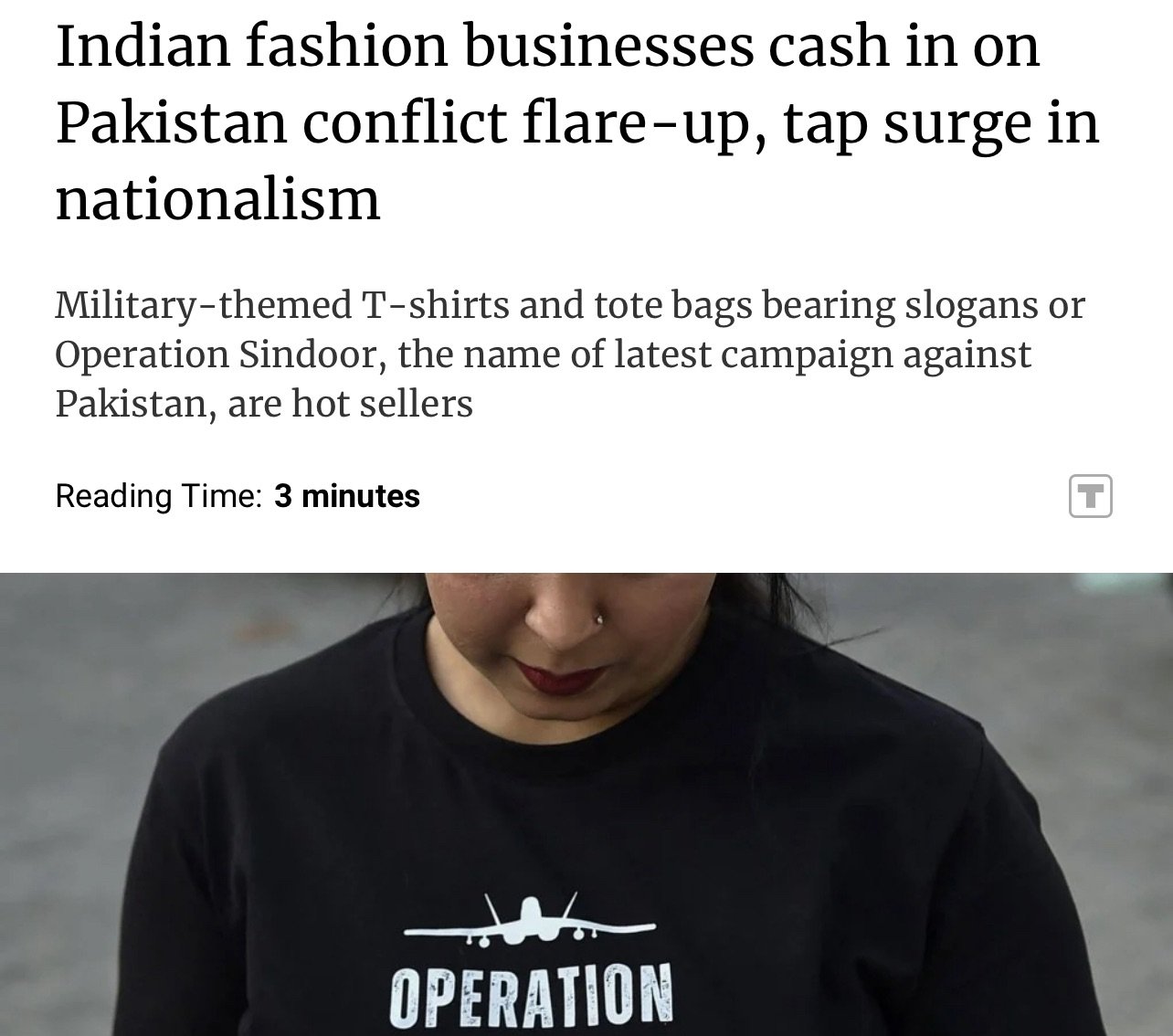Indian businesses capitalize on heightened nationalism amidst recent India-Pakistan conflict, raising questions about cross-border economic impacts and national sentiment.
Key Takeaways:
i) Following recent military confrontations, Indian fashion businesses have swiftly launched merchandise, including T-shirts and bags, glorifying military operations like “Operation Sindoor,” tapping into a surge of nationalist sentiment.
ii) Companies such as KadakMerch and Hank Hawk have seen significant demand for these patriotic products, highlighting a commercial strategy that leverages public emotion during times of conflict.
iii) The rapid commercialization of nationalist themes in India, while an internal economic development, underscores the deep-seated impact of bilateral tensions on societal and commercial trends in the region.
Money Matters Monitoring – In an analysis published by the South China Morning Post, titled “Indian fashion businesses cash in on Pakistan conflict flare-up to tap surge in nationalism” originally authored by AFP, concerns were implicitly raised regarding the economic dimensions of heightened nationalist fervor in India following recent military engagements with Pakistan. The article details how Indian entrepreneurs are leveraging a surge in nationalistic sentiment for commercial gain.
According to the report, Indian businesses quickly identified a market opportunity hours after New Delhi and Islamabad engaged in their most significant conflict in nearly three decades. As quoted from the article, Adi Arora, founder of Indian textile company KadakMerch, stated, “Once our products were online, it went viral and demand is very strong.” This highlights a trend where consumer products are becoming a direct reflection of political and military developments, channeling public emotions into purchasing power.
The merchandise, prominently featuring slogans like “Operation Sindoor” and military-themed designs, became hot sellers. This operation’s visual identity, linked to Hindu culture, served to galvanize nationalist pride, particularly when India is in conflict with Pakistan. The report also noted that Indian authorities, amidst the fighting, banned the sale of flags and merchandise in Pakistan’s colors, reinforcing the nationalist narrative in the Indian market. Another small online business, Hank Hawk, based in Punjab, India, also reportedly saw a rush of inquiries for similar products.
While the immediate economic benefit accrues to Indian businesses, this development reflects a broader regional dynamic. The commercial exploitation of nationalist sentiment in India indicates a societal response to bilateral tensions that could have wider, albeit indirect, economic implications for cross-border trade and investment climate, particularly from a Pakistani economic perspective which often faces the downstream effects of such heightened tensions. The rapid mobilization of commercial entities to align with and profit from nationalistic fervor points to a complex interplay of politics, economy, and public sentiment in the subcontinent.




